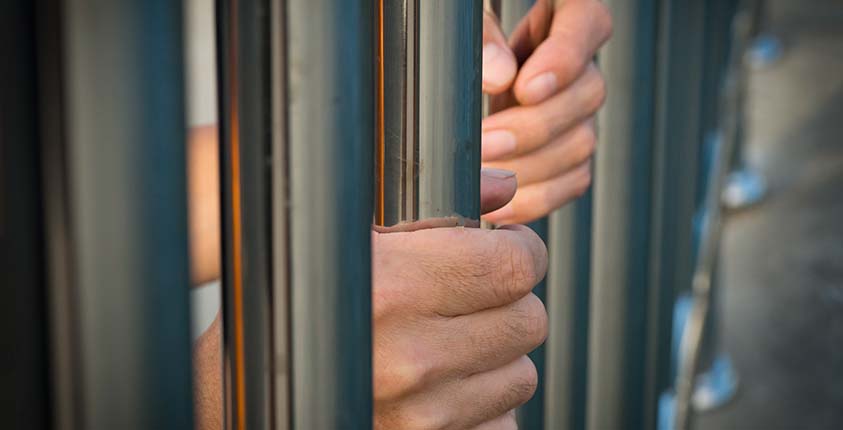Pride is a Prison

Before we dive into our topic this week, I would like to ask you a few simple questions:
- Do you have a hard time offering an apology when you know you were wrong?
- Is it hard for you to celebrate other peoples’ success?
- Do you continue arguing a point even after you realize that your point isn’t worth arguing for?
- Are you quick to anger when things don’t go your way?
- Do you find it difficult admitting your weaknesses or asking for help?
- Are you dishonest with yourself and others?
- Does constructive criticism really hurt?
- Do you feel good when other people fail?
- Do you always have to have the final word?
- Are you fearful of learning new things for risk of appearing dumb?
For some of our more self-aware readers, you may already know where I’m going with this. I asked those questions to shed some light on the most destructive force within you and me: pride. Not to be confused with the kind of pride you have in watching your kids do amazing things or the kind of pride you get from your work or your hobbies, I’m talking about the kind of pride that exposes itself in many different but equally ugly and destructive ways, from criticism of others and stubbornness and defensiveness, to artificiality and boastfulness. While I hope that none of us openly and intentionally seek to live that way, the fact is we all do.
The problem with pride is that it’s self-deceiving. Others can see it in us, but our own prideful nature makes us blind to it. As shallow as this may sound, we all have an appetite to be known and heard, befriended, liked, admired, applauded, and even envied. It’s an appetite that will never, ever be satisfied. The more of it you get, the more of it you’ll want and the more you’ll do to get it, no matter the cost to yourself or your relationships with others.
Here are a few things to consider about pride:
Some have told me that pride makes them stronger and bolder. They argue that it’s the reason they’ve been able to persevere through life and achieve great things. On the contrary, I believe pride slowly makes you smaller, less significant, and, if left unchecked, will make you a downright dreadful person. Ugly pride pushes everyone else away. When you’re so full of you, there’s no more space for anyone else.
Here’s something else for you to consider. Ugly pride makes you weak. It prevents you from saying what needs to be said to yourself and others, and chances are there’s someone in your life right now that you need to thank or apologize to, but you haven’t done so because of your pride. Pride weakens your ability to listen to what needs to be heard, it weakens your ability to be generous with your time, money, and emotions. And above all, it weakens your ability to love and receive love.
So how does one go about shedding themselves of such destructive pride? Here’s the bad news: there’s no magic potion or pill that can immediately evict pride from our nature. The good news? Like the best things in life, it’s a process, and it’s one that we can all follow.
A great place to start is shifting your focus away from self and onto others. That’s easier said than done, so here are a few ideas to get started.
- Refrain from telling a single story about yourself in at least one social setting per day. Instead, carefully listen to what others have to say.
- When you find yourself looking down at someone, shock your system. For example, if you find yourself looking down on the panhandler asking you for change, shock your system by volunteering somewhere that helps society’s down and out.
- Find one situation a day in which you ask for someone’s feedback that you currently feel is “beneath you.” Specifically ask the question, “In your opinion, what could I have done better in that situation?”
- Once a day, willingly give up something you want to do for the sake of another’s desires.
- Stop measuring your success by how much more successful you are than others. Instead, approach your day with an abundance mentality—this thought process is predicated on the belief that success benefits all involved and realizes that there are three ways to doing things: my way, your way, and a better way.
- Overcome blame and prideful excuses by taking ownership. In the book Good to Great, Jim Collins meticulously researched what takes a company from good to great. After five years of exhaustive research, the data overwhelmingly concluded that the greatest companies had what Collins calls Level 5 Leadership. He described these leaders as people who “embody a paradoxical mix of personal humility and professional will.” He goes on to say, “Level 5 leaders look out the window to attribute success to factors other than themselves. When things go poorly, however, they look in the mirror and blame themselves, taking full responsibility.” On the contrary, he found that less successful companies have leaders who “often did just the opposite. They looked in the mirror to take credit for success, but out the window to assign blame for disappointing results.”
So be honest with yourself, stop blaming others, and take ownership of your life. If not, you’ll spend the rest of your life in a prison of pride.
